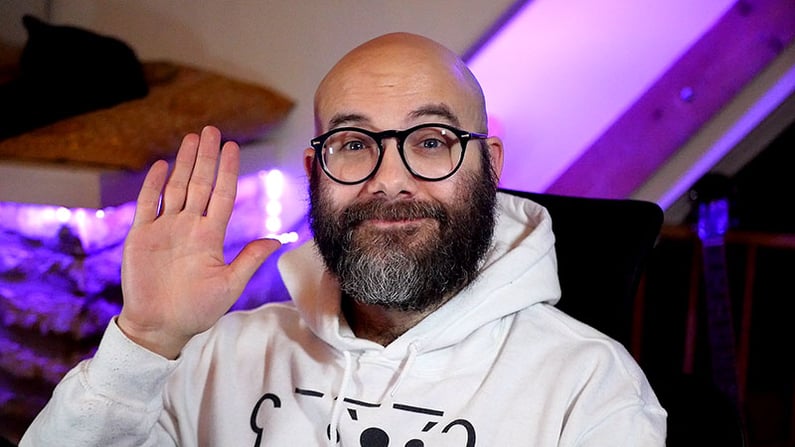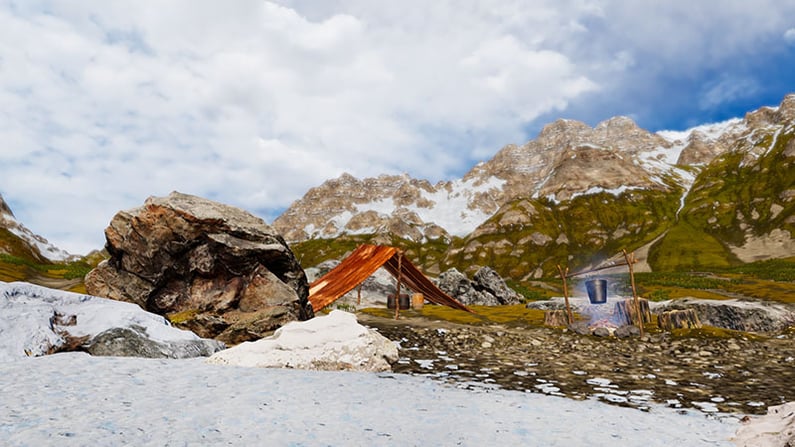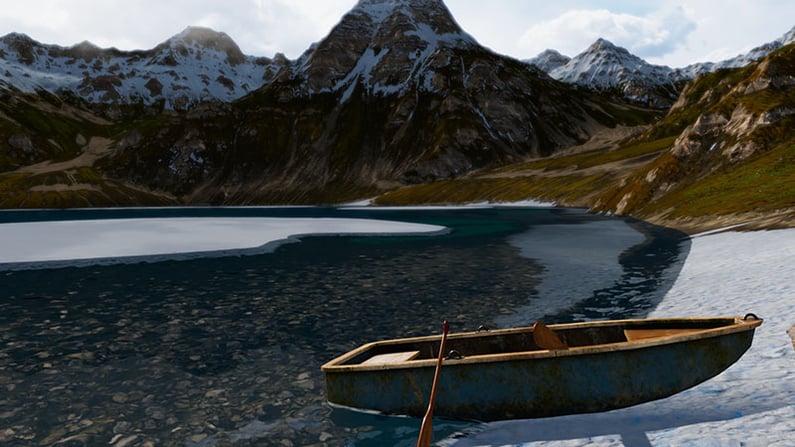For dBs Music graduate Alden Beckett, the outbreak of the COVID-19 pandemic didn’t come without its challenges. Like many other students, the announcement of lockdown meant he had to complete his final project from the confines of his home. However, it also inspired him to develop his thinking to help people cope with the unique stresses of this time. We spoke to Alden to find out more.
“We have always used sound to bring ourselves outside the internal monologues that run through our minds.” dBssound graduate Alden Beckett is articulate and enthusiastic as he speaks about the positive role audio can play in our lives. We are chatting over a video call, a communication method that’s become second nature since the pandemic hit, forcing us all to adapt to a life spent at home.
It’s easy to forget how different the situation felt four months ago. Lockdown had only just been announced and we were all coming to terms with a drastic shift in our way of living, working and socialising. These were the circumstances in which Alden found himself as he was working his final project, and which would ultimately shape the direction it would take.

“Originally my project was intended to be a study of the immersive differences between 2D and 3D sound. Working on the premise that natural sounds are conducive to healthy mental states, I wanted to find out what would happen if I made those sounds 3D. Would it help? My thoughts were that if you have sounds coming from all around you, then you’re more likely to feel connected to them.”
“When we went into quarantine, that’s when I had the idea to introduce visuals into the project. I realised – we’re all stuck in these spaces and it’s very easy to feel like the space you once called home isn’t the safe haven it once was. Maybe you live next to a road or you have loud neighbours or, if you work from home, maybe the line between your workspace and your living space has become blurred. Suddenly, I started to see the potential for a practical project that could help people escape from their immediate physical space and feel like they might be somewhere else.”
That project became Nature Sound Therapy, a 3D game level developed in Unity 3D, designed to act as an aid for relaxation through meditation. The platform features three natural environments designed to recreate locations that people might find relaxing: a forest, a lakeside camp, and a snowy mountain range. Alden then used the Wwise audio middleware software to create 3D soundscapes for these environments. The goal was to create a “suite” of visual and auditory elements that would help to relieve users of the limits of their physical surroundings.
“Sometimes when people try to do things like meditation they don’t know where to start. There is no anchor point. So, the project evolved into being what I call a relaxation suite, where it’s like – if someone’s struggling to quiet their thoughts, you help them imagine they’re next to a river. Here’s what it looks like, here’s what it sounds like, now close your eyes and imagine you’re there.”
“To facilitate that experience, I used WWise middleware to manage the audio behaviour, not only to make it sound natural but also to help with non-linearity. This is a big thing in video game sound. You could sit down and listen to a 15-minute recording that someone has made, but if that loops around again and again, you start to hear the repetition and that breaks the immersion. I used WWise to break up the sounds so that the second and third time they come around it’s different.”

Despite lockdown limiting his access hardware needed to realise the project as a VR platform, Alden developed Nature Sound Therapy to be easily adaptable to VR at a later date. “I think there is some value in the idea that a little bit of pressure helps you to think of new ideas. I don’t think I would have thought of doing VR if I wasn’t put into quarantine because that necessity wasn’t there. Necessity breeds invention and all of a sudden I was looking at it from a different perspective.”
Completing his degree from home presented other hurdles too, such as physical distance from classmates he would normally rely on for feedback. However, the unfaltering support of his tutors meant Alden came out the other end stronger than ever. “I was pretty open with my tutors, even before quarantine happened, about the fact I was starting to struggle with anxiety. It was getting into third year and I was thinking about the course, but also what was going to come after. When we went into lockdown, Jasz Pike, our course leader for the third year was really great. He was always reaching out to me and we would sit in calls where he’d reassure me. The fact I felt like I could always reach out to somebody was a huge help. The safety net policy that dBs has in place really took a load off of my back too. Knowing I had something to fall back on from working hard in year one and two, made a huge difference. Ironically, I was working so hard, I didn’t even need the safety net in the end.”

The response to Nature Sound Therapy has been overwhelmingly positive, not only from Alden’s tutors, who awarded him a first, but from the research participants he tested it on. “Some of the participants are people I already knew that I knew were suffering from things I wanted to work towards relieving, and hearing their feedback was really quite inspiring. People really seemed to resonate with it in one way or another, so now there’s a part of me that wants to do it justice. I was working to a timeline, we were doing it in quarantine, there were all these weird things happening that felt like complications. I was working around them, but maybe in the future when I can tackle these things head on I can look at pushing the project towards more advancement.”
“It will be an interesting thing to put it out into the world and see how everybody feels because obviously I can make three different environments, but if I send them to people in India or the Middle East, they have no emotional connection to those places whatsoever. Already within my research , the diversity of the feedback was incredible, just how personal everything was. And that made sense to me, it’s all about association. There’s always going to be sounds that are soothing for some people and distracting to others, so I would love to build it out and put it out there again, just to see how everyone feels about this kind of stuff.”
Head to Alden's SoundCloud to hear his work.
Do you share Alden's fascination with sound design? Check out our BA (Hons) Music and Sound for Film & TV or if you'd like to know more about becoming a sound designer read our Sound Designer Career Spotlight

